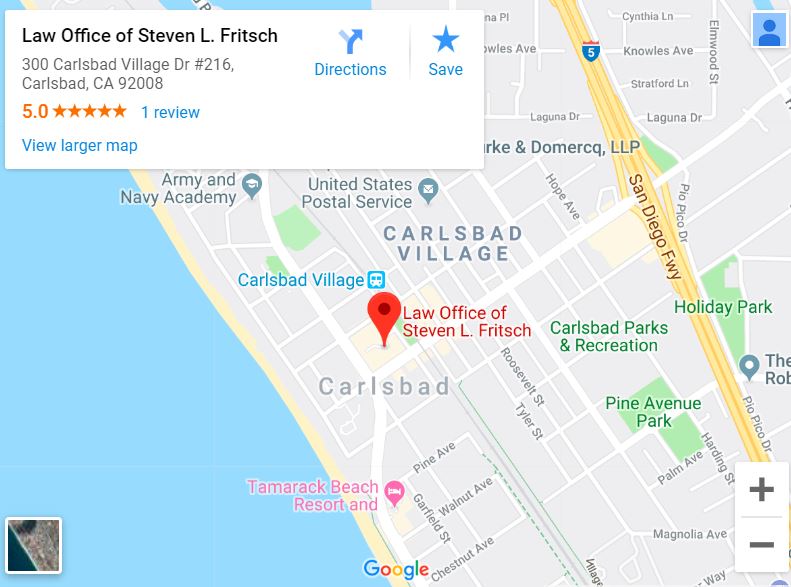 When two people get married, it is a serious commitment that not only binds their intimate and social lives but also intertwines them financially. Because so much is at stake, careful consideration should be given to the decision to marry. In some cases, even after a divorce, certain connections formed during marriage may continue. While most marriages end in either death or divorce, there are specific situations where couples may seek a nullity of marriage, commonly referred to as an annulment. If you find yourself in such a situation, consulting with a knowledgeable Carlsbad Annulment Lawyer can help you navigate the legal process.
When two people get married, it is a serious commitment that not only binds their intimate and social lives but also intertwines them financially. Because so much is at stake, careful consideration should be given to the decision to marry. In some cases, even after a divorce, certain connections formed during marriage may continue. While most marriages end in either death or divorce, there are specific situations where couples may seek a nullity of marriage, commonly referred to as an annulment. If you find yourself in such a situation, consulting with a knowledgeable Carlsbad Annulment Lawyer can help you navigate the legal process.
What is a Marriage Annulment?
Simply put, if a couple is granted an annulment, their marriage is null and void. Both people are free to move on as if the marriage never happened. Some people are drawn to this option more than others. For example, those who strictly follow the teachings of the Roman Catholic Church are more likely to look into getting an annulment because the Church does not recognize divorces. Annulment is the only sanctioned way to end the marriage. Currently, Pope Francis is attempting to streamline the annulment process to make it easier for Catholics to nullify their marriage. In some congregations, resorting to divorce can lead a Catholic person to be denied religious rights, and future marriages aren’t recognized because that person is still married to their original spouse in the eyes of the church.
As far as the state of California is concerned, the same conditions to nullify a marriage apply to everyone. There are a limited number of reasons that qualify a couple for an annulment. The two reasons that are never contested when it comes to voiding a marriage are incest and bigamy. It is illegal to be married to a close relative or to more than one person at a time. Other reasons for annulment require more agreement between the people who are seeking the annulment and the courts.
How to Get an Annulment
Underage – The person filing was under 18 years old when the marriage occurred
Resurfacing Spouse – The return of a prior spouse or domestic partner after a 5+ year absence. A missing spouse or domestic partner can be assumed dead and allow for the other person to remarry after they can’t be located for five years. The fact that they can’t be found protects a person who wants to be remarried from being charged with bigamy.
An Unsound Mind – One or both of the people entering the marriage did so without full understanding of what marriage means. They might be cognitively disabled or may have gotten married while under the influence of excess amounts of drugs or alcohol.
Fraud – The marriage took place with one or both persons displaying themselves different from how they truly are, and those differences can seriously impact the marriage. Some examples include:
- Getting married with the sole purpose of gaining a green card
- Misleading the other person regarding their desire or ability to have children
- Concealing an existing pregnancy
- Concealing a serious criminal record
- One person conceals and refuses to give up an intimate relationship with another person
Force – One of the persons was forced or coerced into the marriage against his or her will.
Physical incapacity – The inability of one person to engage in intimate relations that is deemed as incurable.
When a Marriage Annulment is Not an Option
There are several instances where a spouse might feel betrayed going into a marriage. They may feel a sense of fraud because of lies that were told or facts that were hidden about the other person, but many of them are not legally considered to be fraudulent. Some of these include
- Lying about their financial situation
- Lying about their chastity
- Misrepresenting their moral character
- General personality flaws, such as coldness, a bad temper, extravagance, or being lazy
- Problems with incontinence or poor (but existing) bedroom skills
Annulment Attorney Can Help
Even when a person or couple feels that they have a clear-cut case for an annulment, there can be instances where a judge will declare the reasoning invalid and will refuse to grant the annulment. One possibility is that a person is claiming they were underage when the marriage took place, but they have since become of age and the marriage had been consummated after that time. A judge might also have a different idea of what a serious criminal record is than you do or doubt that you were truly incapacitated when you exchanged vows.
Annulments are hard to get, and it is wise to be prepared for the possibility that it won’t be granted. The California courts recommend that those seeking an annulment look into the option of divorce at the same time. If only annulment forms are filed and the annulment is denied, the couple has to start from the beginning in order to pursue a divorce. But when they work with a family law attorney, they will receive assistance in looking into each possibility. If the annulment is denied, the groundwork for a divorce is already in process.
